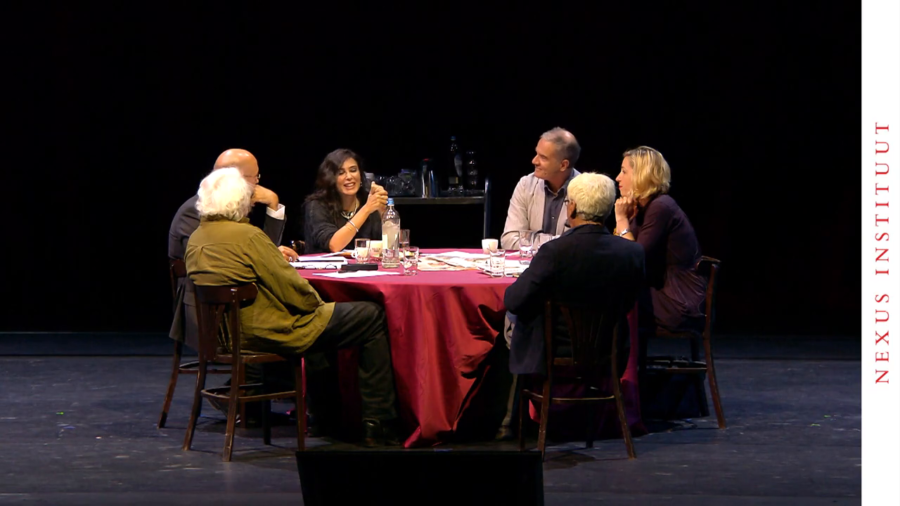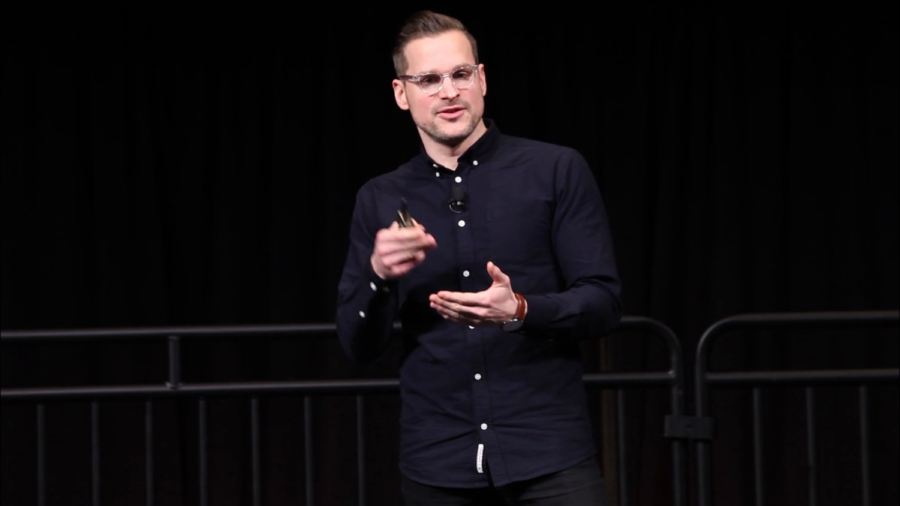We should use our toolbox to make complexity understandable. We need to use the tools at our disposal to build data literacy by showing the context that data exists in. Because with that data, and with context around the data, we’ll be able to build understanding…
Archive (Page 1 of 2)

There are these two basic fundamental fears, these ur-fears that are rippling through our societies. The first is the fear of complexity, and the second is the fear of change.

Today we face many highly complex challenges both nationally and internationally. From security of our information networks, to planning for and managing natural disasters, to emergence of new infectious diseases, to social and political conflict throughout the world, these challenges are messy, and highly interconnected.
Today, in America right now, we only can think of growth in quantitative terms. And in a resource-constrained environment, how frickin’ stupid is that? You’re actually imposing your own death sentence by not being able to get over the grip of this quantitative dynamic.
I actually think you can trace many many of these big systemic crises to being symptoms of the flawed idea that economic growth can go on indefinitely, exponentially, on a finite planet. That’s sort of my North Star. And then as a finance person, why do we think we need economic growth? Well, because the way our capital system works is that capital demands that growth.
We are a communal animal that’s developed to believe that it’s the center of the universe. And we behave as such. You know, we want to conquer, because our brain is wired to want to eat and fuck another day, you know what I mean. That’s what we’re wired to do. That’s where our evil comes from. It’s our animal roots that cause us to need things, and desire things.
Some of my artist friends think what I’m doing isn’t art, and I’ve given up on art. It’ll take care of itself. You know. I mean it’s always been there, it will always be there, and we always know that new art never looks like art at first, ever. So why should this be any different? We just have to trust the process. And I would say that must be true for every other discipline.
I see a set of constraints facing us in the future, and they’re all going to be very expensive. First is funding retirements for the Baby Boom generation. Second is continuing increases in the costs of healthcare. The third is replacing decaying infrastructure. The fourth is adapting to climate change and repairing environmental damage. The fifth is developing new sources of energy. The sixth is what I see as in all likelihood continuing high military costs. The seventh is the costs of innovation.
I enjoy clean air and clean water as much as the most rabid environmental person. I just think we can have the products of society, as well as having these things. Progress is a good thing. I’m just simply a realist. And I’m just trying to enjoy life, enjoy family, enjoy friends, and contribute to society as best I can. And I think providing energy, I think providing the metals that society consumes, that people have in their their iPads, in their iPods, in their iPhones… I think that’s an honorable thing to do. What else would you do? You know, why fight that?

